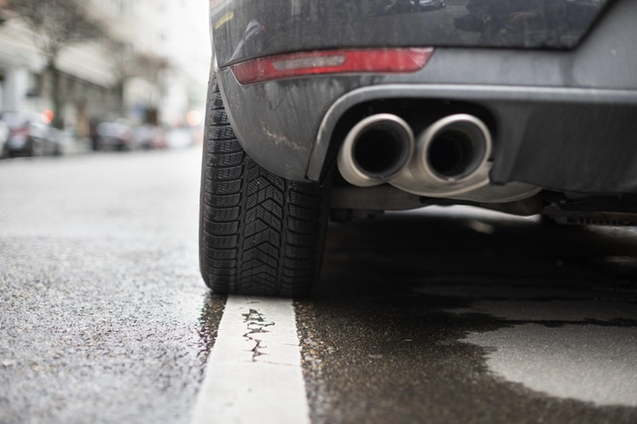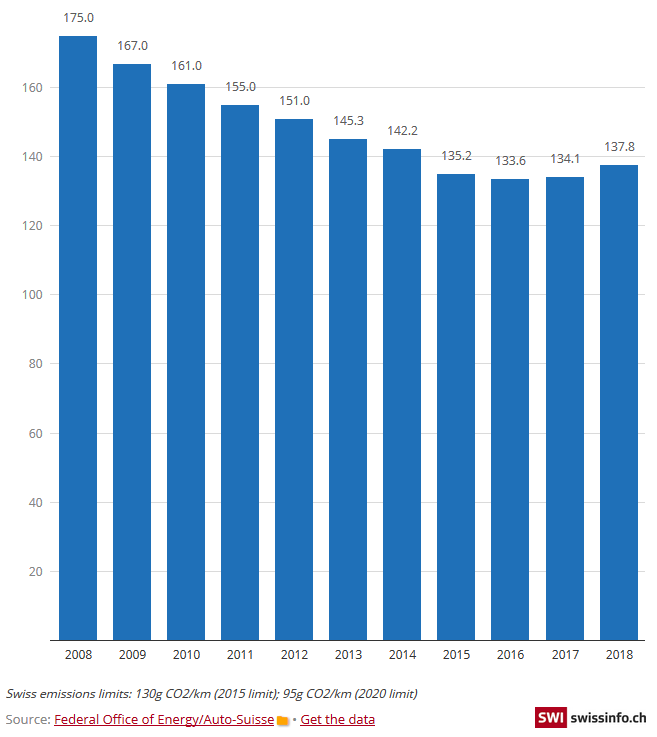For the third year running, newly registered cars in Switzerland have failed to meet the national CO2 emissions target, largely due to the growth in the number of 4x4s and fall in diesel cars, the Federal Office of Energy has warned. Car importers had to pay CHF30 million (.4 million) in fines into a national road fund after failing to meet vehicle CO2 emission objectives in 2018, the federal office said in a statement on Thursdayexternal link. It confirmed that last year, average new car emissions reached 137.8 grams of carbon dioxide per kilometre, up 2.8% from 2017. The average fuel consumption of newly-registered passenger cars in Switzerland also increased to 6.08 litres per 100 kilometres (+3.6% compared to
Topics:
Swissinfo considers the following as important: 3) Swiss Markets and News, Business, Featured, newsletter
This could be interesting, too:
RIA Team writes The Importance of Emergency Funds in Retirement Planning
Nachrichten Ticker - www.finanzen.ch writes Gesetzesvorschlag in Arizona: Wird Bitcoin bald zur Staatsreserve?
Nachrichten Ticker - www.finanzen.ch writes So bewegen sich Bitcoin & Co. heute
Nachrichten Ticker - www.finanzen.ch writes Aktueller Marktbericht zu Bitcoin & Co.
|
For the third year running, newly registered cars in Switzerland have failed to meet the national CO2 emissions target, largely due to the growth in the number of 4x4s and fall in diesel cars, the Federal Office of Energy has warned. Car importers had to pay CHF30 million ($30.4 million) in fines into a national road fund after failing to meet vehicle CO2 emission objectives in 2018, the federal office said in a statement on Thursdayexternal link. It confirmed that last year, average new car emissions reached 137.8 grams of carbon dioxide per kilometre, up 2.8% from 2017. The average fuel consumption of newly-registered passenger cars in Switzerland also increased to 6.08 litres per 100 kilometres (+3.6% compared to the previous year.) The Swiss government says average vehicle emissions should not exceed 130g CO2/km (2015 objective). This limit is due to be lowered to 95 grams by the end of 2020 to meet the requirements of the 2050 energy strategy, voted by the Swiss people in 2017. Between 1996 and 2016, average CO2 emissions from new cars fell steadily, largely due to biofuels. But this was reversed in 2017 (+0.4%), followed by the steeper rise in 2018. |
|
| “The increase in fuel consumption and CO2 emissions is due in particular to the growing share of 4×4 vehicles (2018: 48.9% of total) and the decline in diesel vehicles,” the office said.
Energy office spokesperson Marianne Zünd said if this trend is not reversed, the 74 major vehicle importers may have to contribute even more to the Fund for National Roads and Urban Traffic (FORTAexternal link). Car importers blame the higher CO2 emissions on stricter test conditions since September 1, 2018, which result in higher fuel consumption and CO2 values than in the past. In its annual figures, the energy office also said the percentage of electric or hybrid vehicles had increased by 15%, to represent 3.2% of the 310,000 newly-imported passenger cars in 2018. Growth is even stronger in the first six months of 2019, according to auto-suisse, the umbrella organisation for car importers, which wants 10% of all vehicle imports in 2020 to be electric cars and plug-in hybrids. |
Average CO2 emissions for new Swiss cars |
Tags: Business,Featured,newsletter


